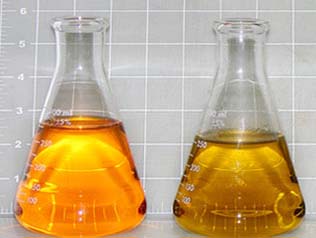
Fuel Technology Trends and Innovations: 2025 Overview
 by Andy Published on Tuesday, April 8th, 2025
by Andy Published on Tuesday, April 8th, 2025
The fuel technology sector is undergoing rapid transformation in 2025, driven by advances in fuels, additives, engine design, lubrication, and digital integration. Here’s a comprehensive look at the most significant trends and innovations shaping the industry this year.
Clean Energy and Alternative Fuels
Clean energy solutions are gaining momentum, with significant progress in hydrogen, sustainable aviation fuels, and advanced nuclear energy. The industry is deploying a mix of technologies—such as energy storage, clean hydrogen, and renewables—to address growing energy demands and climate goals. Research and development investments are accelerating, focusing on improving efficiency, reducing costs, and maturing emerging technologies like batteries, electrolyzers, and carbon management.
Fuel Additives: Growth and Innovation
The global fuel additives market is expanding, propelled by strict emission regulations and the push for cleaner, more efficient fuels. Key trends include:
- Shift to Bio-based and Sustainable Additives: Companies are increasingly adopting bio-based and eco-friendly additives, responding to regulatory pressures and consumer demand for sustainability.
- Advanced Nanotechnology: Next-generation additives use nanotechnology to enhance combustion, reduce deposits, and extend engine life.
- Multifunctional Additives: There’s a move toward additives that deliver multiple benefits, such as improved fuel efficiency, reduced emissions, and better engine protection.
- Digital and AI Integration: AI-driven fuel optimization and digital monitoring technologies are being developed to further enhance additive performance and fuel management.
These trends are not only shaping automotive fuels but also impacting aviation, marine, and industrial sectors, where high-performance additives are essential for efficiency and equipment longevity.
Engine Technology: Efficiency and Sustainability
Engine design is evolving to meet stricter emissions standards and the demand for higher efficiency. Notable trends include:
- Advanced Combustion and Materials: Innovations like high bypass ratio engines, improved aerodynamics, and advanced materials are reducing fuel burn and emissions in aviation and automotive sectors.
- Hybrid and Electric Propulsion: Electric and hybrid systems are increasingly used, especially for short-haul flights and urban vehicles, as part of the broader shift toward sustainable mobility.
- Software-Defined and Autonomous Vehicles: The automotive industry is adopting software-defined vehicles and autonomous technologies, enabling real-time performance optimization and enhanced safety.
Lubrication: Smart Solutions and Sustainability
Lubrication technologies are advancing with the integration of digital tools and sustainable formulations:
- IoT and Real-Time Monitoring: Sensors and connected systems enable continuous monitoring of lubricant conditions, allowing predictive maintenance and reducing downtime.
- AI-Driven Formulations: Artificial intelligence is used to develop lubricants tailored to specific operating conditions, improving efficiency and extending service intervals.
- Eco-Friendly Lubricants: There’s a growing market for lubricants derived from renewable sources, supporting environmental goals and regulatory compliance.
Digital Transformation and Retail Fuel Innovation
Digitalization is revolutionizing fuel delivery and retail operations:
- Smart Fuel Management: AI and IoT are optimizing inventory, reducing waste, and improving supply chain efficiency for fuel retailers and distributors.
- Connected Payment Solutions: Innovations like in-car payments and mobile apps are enhancing customer convenience at fuel stations.
- Business Intelligence: Data analytics is being leveraged to understand consumer behavior, optimize pricing, and tailor marketing strategies.
Aviation and Regulatory Landscape
The aviation sector is experiencing a surge in demand for fuel additives that boost efficiency and reduce emissions. Sustainable Aviation Fuels (SAF) and bio-based additives are becoming standard as regulators impose stricter pollution controls. The industry is also investing in carbon-negative technologies and localized, sustainable production methods.
Conclusion
In 2025, the fuel technology landscape is defined by sustainability, digital integration, and advanced materials. Companies are innovating across the value chain—from cleaner fuels and smarter additives to efficient engines and predictive maintenance—while adapting to evolving regulations and market demands. The future of fuels, engines, and lubrication is increasingly high-tech, sustainable, and customer-centric, promising greater efficiency and lower environmental impact for years to come.







 categories
categories